Search results for: “companies”
-
Hydrogen vehicles and fuelling stations: where’s the IP?
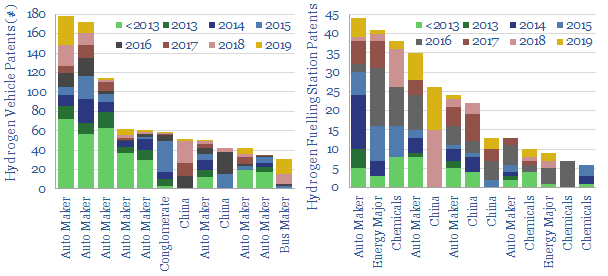
We cleaned 18,600 patents into hydrogen vehicles and vehicle fuelling stations. Technology leaders include large auto-makers, industrial gas companies, Energy Majors and hydrogen specialists. Overall, the patents indicate the array of challenges that must be solved to scale up hydrogen fuel in transport.
-
Backstopping renewables: cold storage beats battery storage?
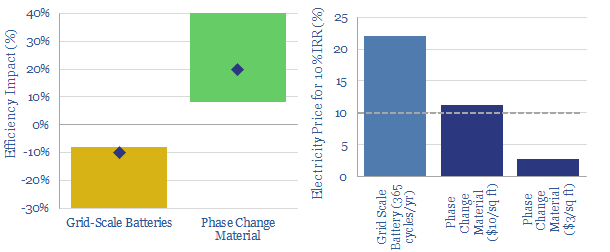
Phase change materials could be a game-changer for energy storage. They can earn double digit IRRs unlocking c20% efficiency gains in freezers and refrigerators, which make up 9% of US electricity. This is superior to batteries which add costs and incur 8-30% efficiency losses. We review 5,800 patents and identify leading companies.
-
Organic Rankine Cycles: the energy economics?
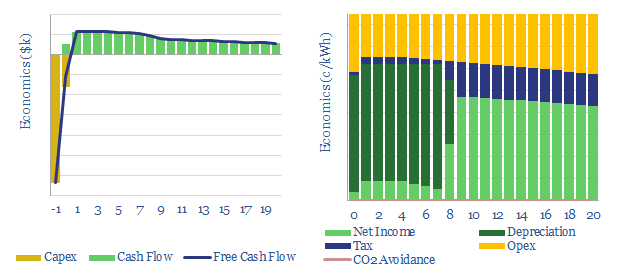
This data-file captures the energy economics of an Organic Rankine Cycle to recover low-grade waste heat (at 70-200C) from an industrial facility, or in the geothermal industry. A CO2 price of $50-75/ton could greatly accelerate adoption and improve the efficiency of industrial facilities.
-
Tesla: where’s the IP?
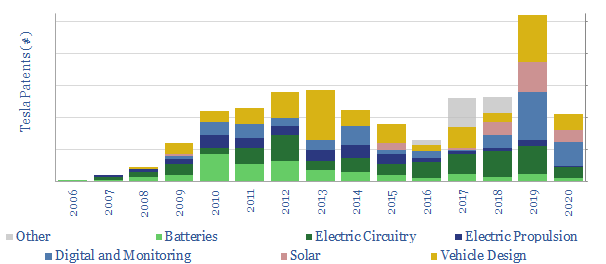
This data-file compiles all of Tesla’s patents, classifies them across 1,000 patent families, and describes their innovations. Our conclusion is that Tesla holds less patented IP than rival auto-companies. However, where it has filed patents, it is more focused on pure EV innovations, including recently, big data solutions and improved batteries in 2019-20.
-
Refinery membranes: where’s the IP?
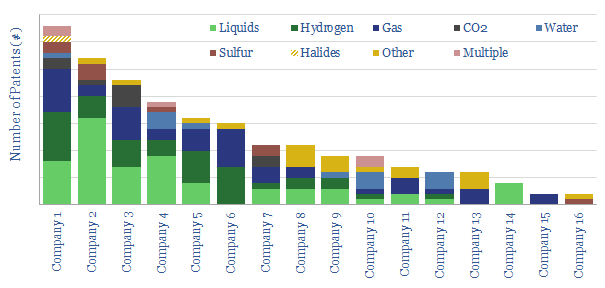
This data-file reviews over 1,000 patents to identify the technology leaders aiming to use membranes instead of other separation processes (e.g., distillation) within refineries. Operational data are also presented for an ExxonMobil breakthrough and Air Products’s hydrogen recovery technology.
-
Low-carbon refining: insane in the membrane?
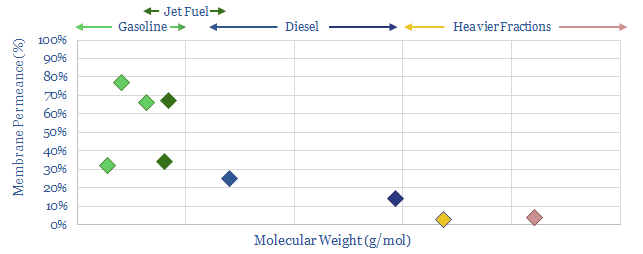
1% of global CO2 comes from distilling crude oil at refineries. An alternative uses precisely engineered polymer membranes to separate crude fractions, eliminating 50-80% of the costs and 97% of the CO2. We reviewed 1,000 patents, including a major breakthrough in 2020. This 14-page note presents the opportunity.
-
Fuel cells: performance, efficiency and decline rates?
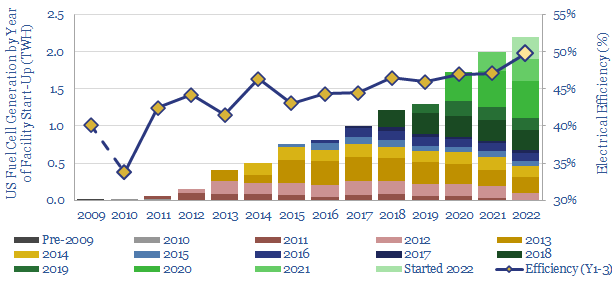
This data-file captures the performance of c160 fuel cell power plants, installed to-date in the US, generating over 2TWH of electricity, looking facility-by-facility, year-by-year. How has the performance, efficiency and longevity of US fuel cell power plants been trending over time?
-
Lithium ion batteries for electric vehicles: what challenges?
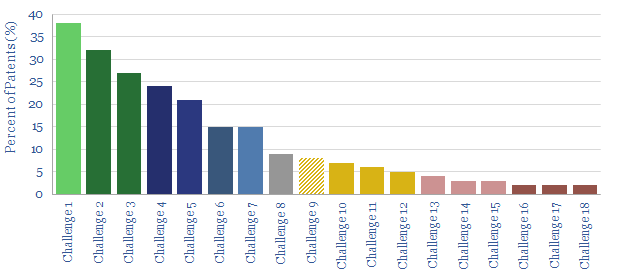
This data-file tabulates the greatest challenges for lithium ion batteries in electric vehicles, which have been cited in 2020’s patent literature. Conclusions are spelled out in detail, covering energy density, “million mile” longevity and electric semi-trucks. Companies profiled include Tesla, CATL, LG, Sumitomo, et al.
-
Floating offshore wind: what challenges?
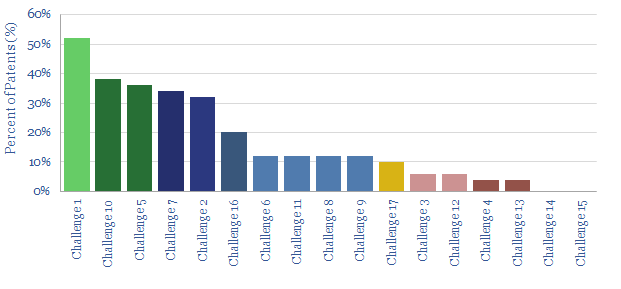
This data-file ranks the greatest challenges for the floating offshore wind industry, by reviewing 50 recent patents, filed by leading companies. The challenges are relatively immutable. They likely double capex and levelized costs, compared with traditional offshore wind.
-
HVDC power transmission: the economics?
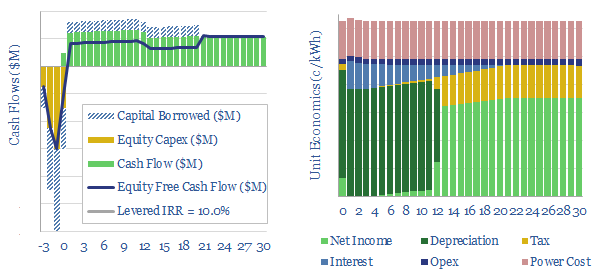
This model captures the economics of transporting electricity (e.g., wind and solar), over vast distances, using high voltage direct current power cables (HVDCs). Our base case shows a 3-10c/kWh transportation spread is required to earn a 10% levered IRR on 1,000-mile cable.
Content by Category
- Batteries (89)
- Biofuels (44)
- Carbon Intensity (49)
- CCS (63)
- CO2 Removals (9)
- Coal (38)
- Company Diligence (94)
- Data Models (838)
- Decarbonization (160)
- Demand (110)
- Digital (59)
- Downstream (44)
- Economic Model (204)
- Energy Efficiency (75)
- Hydrogen (63)
- Industry Data (279)
- LNG (48)
- Materials (82)
- Metals (80)
- Midstream (43)
- Natural Gas (148)
- Nature (76)
- Nuclear (23)
- Oil (164)
- Patents (38)
- Plastics (44)
- Power Grids (130)
- Renewables (149)
- Screen (117)
- Semiconductors (32)
- Shale (51)
- Solar (68)
- Supply-Demand (45)
- Vehicles (90)
- Wind (44)
- Written Research (354)